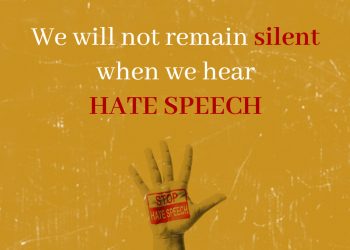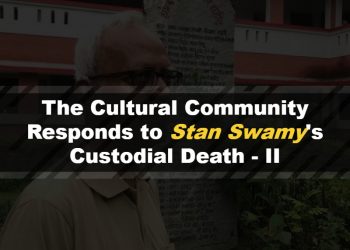
This cannot be the last generation of Indians to remember what it was like to live in a free nation. One by one, the institutions that were supposed to protect democracy and the Constitution have been subverted or ruthlessly dismantled, from Parliament to education to the delivery of law and order.
We live in an ocean of poisonous hate, in a time where lynchings and persecutions of Muslims and many other minorities have become normal, everyday business, when every wave of protest by farmers and others who have suffered, has been blanked out from the screens of an openly partisan media.
The other side of hate is the deliberate creation of an atmosphere of fear and unease. The reason that killings have become a public spectacle, rapists and murderers garlanded, feted, given front-row seats, and that violent mobs have been given free reign has been to instil the habit of fear in Indians. People fear speaking their minds. They fear that any criticism of PM Modi’s government will lead to savage reprisals. Any opposition to the ruling party is called “anti-national”, any dissent is smeared as seditious or treacherous. Not even in the country’s darkest moments have the voices of so many been so roughly, ferociously suppressed.
Perhaps the most dangerous shift of all is the shift in our democracy towards an oligarchy. We are seeing the rise of new oligarchs, an invisible billionaire’s club that seems to be beyond any form of questioning, by the media, by citizens, or by other political parties.
In 2008, Raghuram Rajan sounded a warning: “Three factors—land, natural resources, and government contracts or licences—are the predominant sources of the wealth of our billionaires. And all of these factors come from the government… too many people have gotten too rich based on their proximity to the government. If Russia is an oligarchy, how long can we resist calling India one?”
Where are the crores that have been poured into the 2014 and 2019 elections coming from? How much say does corporate power have in the making and unmaking of governments, the rise of religious frenzy and unchecked private armies, the destruction of the environment in the name of a dubious, unequal development?
We have not yet fully understood how deep these changes go, how swiftly power has drained away from citizens. Power is now in the hands of only a few key players in the media, in politics, and in the corporate world.
The 2019 election is crucial. It will decide whether our democracy survives, or whether we slide over the edge of that yawning abyss, becoming a nation that has yielded every one of its founding values. Freedom, liberty, equality, hope, the ancient Indian traditions of fraternity, pluralism and multiculturalism: these are under siege today, as India moves into an age of divisiveness, well-stoked hate, a slick and well-marketed time of tyranny.
We have better options, better choices. Vote wisely, or lose everything that is familiar and beloved about India.
Read More:
As We Stand at the Gates of Democracy
The Invisible Threat
Parliamentary Assembly Elections – 2019
More than 200 Writers Appeal to Citizens
Note: This is a part in a series of articles from writers who are deeply uneasy about the future of the country. They are each an appeal to citizens – discussing what in their view, is at stake in this General Election.
Nilanjana S Roy is the author of two fantasy novels, The Wildings and The Hundred Names of Darkness and a collection of essays on the love of reading, The Girl who Ate Books. She is also a Life&Arts columnist for the Financial Times and was formerly an opinion writer for The New York Times and Business Standard.




